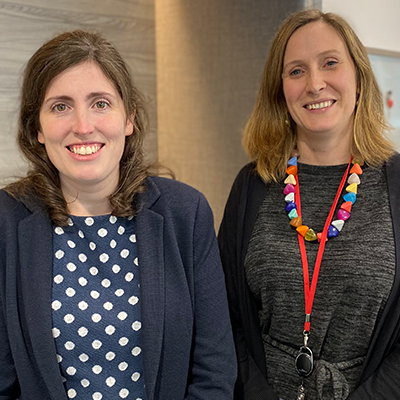Sure Start shows that to improve health, governments must keep the faith
26 April 2024

There is a familiar pattern that accompanies any new policy announcement: a loud fanfare, followed by a protracted fizzling out. Because policies rarely deliver immediate results, attention wanes and resources are redeployed when other shiny new initiatives come along.
But even after policies have disappeared, some continue to loom large in public and political consciousness – as Sure Start does. Established in 1998 as ‘one-stop shops’ for families with children younger than 5, they aimed to improve childcare, early education, health and family support. They were built on evidence that a child's early years are critical to their long-term health and life chances. Funding has been reduced over time and by 2022 more than 1,340 centres had closed. Yet it is only now, decades later, that we’re really starting to appreciate how transformational Sure Start was, delivering significant improvements for young people and their families across a range of outcomes.
If the next government is to turn the tide on rising ill health and inequality, there must be a shift back to this kind of ambitious, long-term investment. Sure Start’s systems approach, with a strong focus on prevention and robust evaluation, is a solid example of the bold, coordinated action that is needed. But – this time – such approaches will have to be accompanied by sustained political courage to continue investing, while waiting for the evidence to catch up. With recognition that it is often a long wait.
It has taken more than 20 years to understand the successes of the Sure Start programme in detail. In 2021 the Institute for Fiscal Studies (IFS) published research demonstrating Sure Start’s positive impact on health. For instance, evidence shows that Sure Start led to a significant net decrease in the number of hospital admissions for children, especially those living in deprived areas. The research also concluded that Sure Start had long-term benefits for children’s social, emotional and behavioural development.
And more evidence of positive impact keeps coming. Earlier this month, the IFS published new research showing that access to Sure Start centres at a young age led to higher GCSE grades, giving children a strong foundation for success. Educational outcomes were most improved for students from lower-income households, and for students from minority ethnic backgrounds. The same research found that for every £1 the government spent on Sure Start, the benefits to educational outcomes were worth £1.09 – and that’s before considering benefits in other areas such as physical health and parental employment.
So what can the next government learn from Sure Start’s successes, to inform effective social policy decisions?
- Take a whole-systems approach. Sure Start’s positive impact stemmed from its wide-ranging strands of work, including direct provision of services, building social capital, parenting support programmes and support for parental skills and employment. The government should develop services targeting a range of building blocks of good health. This will require a whole-government approach where all departments do what they can to maximise opportunities to improve health across the full range of their policy areas.
- Invest in prevention over the long term. Prevention has the potential to be highly cost effective, yet these services struggle to attract commitments to long-term funding and are vulnerable to cuts when finances are tight. Long-term investment – like Sure Start’s – is all too rare: we have become used to spending on acute needs being prioritised over spending on prevention. For example, the Institute of Health Equity found that local authority funding for children and young people’s services fell by £3bn between 2010/11 and 2017/8, with the greatest cuts in more deprived areas. As we’ve stated elsewhere, a new approach is needed to put prevention spending on an equal footing with day-to-day spending.
- Invest in evaluation and learn from the evidence. Policymakers are often drawn to shiny new ideas, but as former education secretary Estelle Morris said on reviewing the IFS findings, ‘Why would anyone want to waste time and resources constantly reinventing the wheel when there is good strong evidence about what works?’. Sure Start is a rare example of a government policy that has been robustly evaluated over a long period. This evidence is a rich resource to learn from.
- Support local areas to tailor policies to their places. Central policy for Sure Start centres was initially owned by the Department for Education but local authorities were responsible for planning and managing the children’s centre programme in their area. Local authorities must be empowered to take action on the building blocks of health: they hold many of the vital levers and, with the right resources, can tailor policies to local needs. National government should look where possible to devolve responsibility to local areas, providing funding that is sufficient, sustainable and proportionate to need.
The next government will have to make difficult decisions about priorities in a challenging financial context. Childcare and early years policy will be an ongoing hot topic and policymakers could definitely do worse than spending some time reviewing research from IFS and others on the long-term impact of Sure Start. But more generally, Sure Start remains popular for a reason. It offers an important reminder that ambitious, long-term policies taking a systems approach to improving health and wellbeing are possible – and indeed essential.
Further reading
Work with us
We look for talented and passionate individuals as everyone at the Health Foundation has an important role to play.
View current vacanciesThe Q community
Q is an initiative connecting people with improvement expertise across the UK.
Find out more

